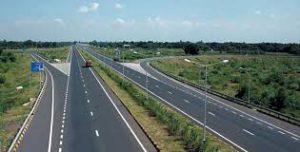The Indian government has approved the construction of a six-lane connector linking Dasna and Meerut as part of the Delhi-Meerut Expressway project. This crucial infrastructure development will require an investment of ₹1,658 crore. The overarching objective of the Delhi-Meerut Expressway is to mitigate traffic congestion within the national capital. The expressway construction encompasses four distinct stretches. These include the segment from the Nizammudin Bridge to the Uttar Pradesh border, the stretch from the UP border to Dasna, and the section from Dasna to Hapur. In addition to this, the connector between Dasna and Meerut forms the fourth component.
A senior government official confirmed the development, stating, “Based on the recommendation of the Expert Appraisal Committee, the Ministry of Environment has given clearance environment to National Highway Authority of India’s proposal to construct Greenfield sequence of Delhi-Meerut Expressway from Dasna –Meerut and the 6 lane connector.”
The official further elaborated that the planned Dasna-Meerut section has received approval contingent upon fulfilling certain conditions. The National Highways Authority of India (NHAI) has proposed a new alignment for the 46-kilometer-long road, which incorporates one major bridge and four minor bridges.
Beyond constructing a new alignment, the National Highways Authority of India also plans to upgrade and widen a total of 19 existing channels to four lanes, coupled with the construction of 626 new channels. The ambitious project necessitates the acquisition of 479.91 hectares of land, contributing significantly to the overall cost. The NHAI, in collaboration with the Ministry of Transport, has been diligently assessing the proximity between the National Highway and areas experiencing urbanization, commercialization, or industrialization. This meticulous evaluation aims to anticipate and preemptively address potential traffic bottlenecks arising from these developments. The Dasna-Meerut connector is anticipated to play a critical role in improving connectivity and reducing travel time in the region.
